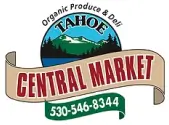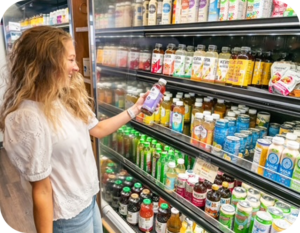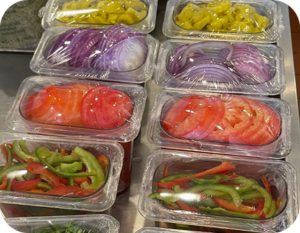The modern grocery structure offers countless options for purchasing dairy products, from massive supermarket chains to small independent shops. While convenience drives many shopping decisions, the quality and sourcing of dairy products varies significantly based on where you buy them. Local dairy stores provide advantages that extend beyond the products themselves, affecting community health, environmental sustainability, and the freshness of what ends up on your table.
Product Freshness & Quality
Local dairy stores typically source products from nearby farms and producers, meaning dairy items spend less time in transit and storage before reaching consumers. Milk purchased at a local dairy store may have been bottled just days earlier, compared to supermarket milk that often travels hundreds or thousands of miles before arriving on shelves. This difference in transportation time directly affects taste and nutritional value.
Fresh dairy products retain more of their natural flavors and beneficial compounds. Milk that reaches consumers quickly maintains higher levels of vitamins and proteins that can degrade during extended storage and transport. The taste difference becomes apparent when comparing truly fresh dairy to products that have spent weeks moving through distribution networks.
Local dairy stores also tend to carry products from smaller dairies that prioritize quality over quantity. These producers often use traditional methods and allow cows to graze on pasture, resulting in milk with better flavor and nutritional profiles. Supermarkets primarily stock products from industrial-scale operations where efficiency and cost reduction take precedence over product excellence.
Knowing Your Food Source
Shopping at local dairy stores creates direct connections between consumers and the farms producing their food. Many local dairy retailers maintain relationships with specific farms and can provide information about farming practices, feed sources, and animal welfare standards. This transparency proves impossible with supermarket dairy aisles stocked with products from distant, anonymous suppliers.
Being in the know of where the dairy products come from allows consumers to make informed choices aligned with their values. Someone concerned about hormone use can ask specific questions about farming practices. Those interested in supporting pasture-based dairies can identify which products come from farms using these methods. Supermarkets rarely provide this level of detail about product origins.
The ability to trace food back to its source also matters for food safety. When issues arise, local dairy stores can quickly identify affected products and communicate directly with producers. The shorter supply chain makes accountability clearer and response times faster compared to the complicated distribution networks feeding supermarkets.
Supporting Local Agriculture
Purchasing dairy from local stores keeps more money within the regional economy. When consumers buy from local dairies through independent retailers, a larger portion of each dollar spent goes directly to farmers and producers. This financial support helps small and mid-sized dairy farms remain viable despite competition from industrial operations.
Local dairies contribute to the preservation of agricultural land and rural communities. These farms provide employment, maintain open space, and support related businesses including feed suppliers, veterinarians, and equipment dealers. The ripple effects of supporting local dairies extend throughout the regional economy in ways that purchases from distant suppliers cannot match.
Environmental benefits also accompany supporting nearby producers. Dairy products that travel shorter distances require less fuel for transportation, reducing carbon emissions associated with food distribution. Local dairies often operate on smaller scales with practices that prove less environmentally intensive than industrial operations.
Specialized Products & Variety
Local dairy stores frequently offer products unavailable in supermarkets. Small-batch cheeses, flavored yogurts made with local ingredients, and artisanal butter represent the types of specialty items found in independent dairy shops. These products cater to customers seeking something beyond the standardized offerings that dominate supermarket shelves.
Seasonal variations also appear more prominently in local dairy stores. Spring milk from cows grazing on fresh pasture tastes different from winter milk, and small dairies may produce special batches highlighting these seasonal characteristics. Supermarkets prioritize consistency year-round, eliminating the interesting variations that reflect natural cycles.
Heritage dairy breeds and traditional production methods find support through local dairy stores willing to stock products that appeal to smaller customer bases. Supermarkets focus on fast-moving mainstream products, leaving little shelf space for items with devoted but limited followings.
Customer Service & Expertise
Staff at local dairy stores typically possess extensive knowledge about the products they sell. They can explain differences between various types of milk, recommend cheeses for specific purposes, and suggest pairings or uses for unfamiliar items. This expertise helps customers make better purchasing decisions and discover new products they might enjoy.
The personal relationships that develop between regular customers and staff at local stores create shopping experiences that feel welcoming and supportive. Staff members remember preferences, alert customers to new arrivals, and provide service that treats shoppers as individuals rather than anonymous transactions.
Questions about products receive detailed, informed answers at local dairy stores. Staff can explain why certain cheeses cost more, describe the flavor profiles of different milk varieties, and discuss the farming practices behind various brands. Supermarket employees rarely possess this depth of knowledge about dairy products.
Health Considerations
Local dairy stores often prioritize products from farms using minimal processing and avoiding unnecessary additives. Many small dairies produce milk that undergoes simple pasteurization without the ultra-high-temperature processing common in supermarket milk. This gentler treatment preserves more of the milk’s natural characteristics and beneficial compounds.
The transparency available through local dairy stores allows health-conscious consumers to select products meeting their specific dietary needs and preferences. Those seeking A2 milk, grass-fed dairy, or products from specific breeds can more easily find and verify these options through local retailers with direct producer relationships.
Local stores also tend to stock dairy products from farms that prioritize animal welfare, which some research suggests may affect the nutritional quality of resulting dairy products. Cows raised in less stressful conditions with access to pasture produce milk with different fatty acid profiles compared to conventionally raised animals.
Building Community Connections
Local dairy stores serve as gathering places where community members interact, share information, and build relationships. These shops function as more than simple retail spaces, becoming part of the social fabric that holds communities together. Supermarkets rarely foster this type of community connection despite their larger size.
Shopping locally creates opportunities to meet neighbors, encounter familiar faces, and participate in a shared community experience. These social connections contribute to overall quality of life in ways that extend beyond the transaction of buying dairy products.
Local stores often participate in community events, support local causes, and provide employment for area residents. This civic engagement strengthens communities and creates reciprocal relationships between businesses and the people they serve.
Economic Resilience
Communities with thriving local businesses including independent dairy stores demonstrate greater economic resilience than those dependent entirely on chain retailers. Local businesses adapt more quickly to changing conditions and customer needs, maintaining operations when larger chains might close locations deemed insufficiently profitable.
The diversity of retail options that includes local stores creates economic stability by reducing dependence on distant corporate decisions. When communities support local dairy stores and other independent retailers, they maintain control over their local economy rather than leaving it subject to the strategic priorities of national chains.
Making the Choice
While supermarkets offer undeniable convenience and competitive pricing on some items, local dairy stores provide advantages that merit consideration. The superior freshness, transparency about product sources, support for local agriculture, and community benefits combine to create compelling reasons for choosing local dairy retailers when possible.
Consumers increasingly recognize that food choices carry implications beyond immediate convenience and cost. Where dairy products come from, how they get produced, and who benefits from their sale all matter for health, environmental, and community reasons. Local dairy stores align with values that prioritize quality, sustainability, and local economic vitality over pure convenience and the lowest possible price.







